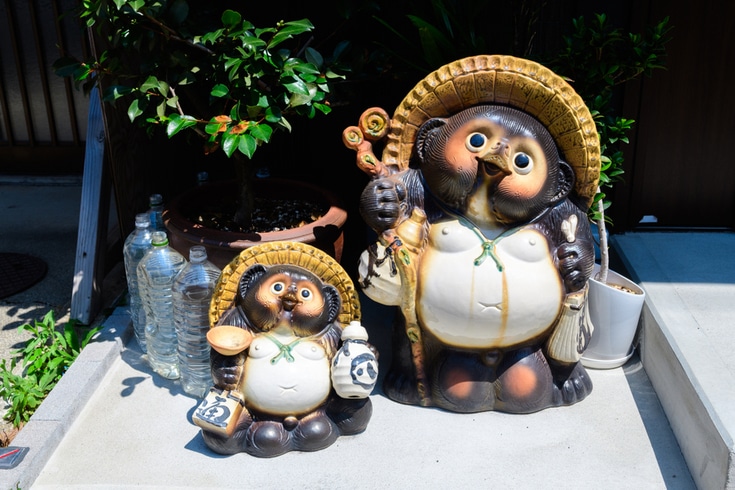What is Defamation (Insult Crime)? Explanation with Examples from Weekly Magazine Reports

Honor, or the subjective evaluation one has of their own personal worth, is a benefit that should be protected by law. Expressions that are extremely vulgar, insulting, or defamatory, exceeding the limits of what is socially acceptable, may be considered as an infringement of personal rights, potentially constituting emotional distress (insult crime).
Defamation is a crime that is established by pointing out true or false facts in a public situation (where an unspecified number of people will know), thereby damaging a person’s reputation.
On the other hand, for emotional distress (insult crime), how the target perceives the expression is critically important, and it can be established if they can recognize it as an expression about themselves. In the case of emotional distress, even if it is not done publicly, that is, in a manner that can be communicated to an unspecified or large number of people, if it is recognized as exceeding the socially acceptable limit and hurting the feelings of honor, it becomes a tort.
In this article, we will introduce how the requirements for establishing emotional distress (insult crime) are judged in actual court cases.
https://monolith.law/reputation/malicious-slander-defamation-of-character-precedent[ja]
Lawsuit Regarding Defamation and Insult (Infringement of Honor)

In 2014, a man in his twenties living in Fukuoka Prefecture hoped to obtain a dietitian license and eligibility to take the Japanese National Registered Dietitian Examination. He submitted an application to the adult student quota of Fukuoka Women’s University, but it was not accepted. He argued that refusing his examination on the grounds of being male was a violation of the Japanese Constitution.
Case Overview
The following year, the man withdrew his lawsuit, bringing the case to a close. However, Weekly Magazine A published an article titled “A Man Who Wants to Enter a Women’s University,” written under the pseudonym of a fictitious “gay bar mama.” The man claimed that this article defamed him and/or violated his sense of honor, and he filed a lawsuit seeking damages.
Interestingly, the article in Weekly Magazine A did not mention the man’s real name. This made the case intriguing from the perspective of whether an “insult crime against anonymous information” could be established. In other words, it was a question of whether an insult could be established in a situation where identification was not possible.
Court’s Judgment on Defamation
In the article, there were negative opinions about the man’s actions in the article, such as “In the end, the boy who is complaining about C University is also spoiled. If he wants so much pocket money, he should sell his body like a Kabuki actor. Such experiences will nourish his gay life.” However, the court did not recognize defamation because there was no indication of a “fact” that would lower the man’s social reputation described in these parts.
The above part of the article criticizes the man’s initiation of a separate lawsuit, using insulting expressions such as recommending prostitution. However, based on the ordinary attention and reading of general readers, it is merely perceived that the man’s initiation of a separate lawsuit, including a claim for consolation money, is based solely on the fact, and the slightly biased subjectivity and evaluation of the “mother” are stated. Even if such critical commentary is received, it does not immediately lower the social evaluation of the man in the article.
Fukuoka District Court, September 26, 2019 (Gregorian calendar year)
Court’s Judgment on Defamation of Honor
In this article, derogatory expressions such as “Are you stupid?” and “Equal idiot” were used to critique a man, and it was undeniable that the plaintiff’s honor was infringed to a certain extent.
On the other hand, the court ruled that the term “idiot” is a derogatory expression frequently used in social life, and it does not significantly degrade the man’s personal value. Considering various circumstances, such as the fact that no specific facts or grounds for calling him an “idiot” were shown, and that it was used in the sense of criticizing the man’s opinion as “I cannot agree” rather than implying that the man’s intelligence is low, the court concluded that it does not exceed the socially acceptable limit.
Regarding the part where it was critiqued, “If you want pocket money so much, you should sell your body like a Kabuki actor. Such experiences will nourish you as a gay person,” and the part where the prostitution circumstances of Kabuki actors were described, the court stated:
“The suggestion to engage in prostitution rather than filing a lawsuit is an unacceptable proposal, considering that prostitution is now considered a social evil and illegal. It can be said that it is an attack on the plaintiff by daring to make such a proposal.”
“It has gone beyond the limit of legitimate criticism of the plaintiff’s actions and should be considered an attack on the plaintiff’s personality. Considering the social influence of this magazine and other circumstances, it is reasonable to interpret the above-mentioned part of this article as an insulting act that exceeds the socially acceptable limit.”
Fukuoka District Court, September 26, 2019 (Gregorian calendar year)
Thus, the court recognized the defamation of honor (insult crime).
https://monolith.law/Japanese reputation/defamation-and-infringement-of-self-esteem[ja]
https://monolith.law/Japanese reputation/slander-defamation-law[ja]
On Identifiability

Regarding identifiability, it is reasonable to interpret that “Infringement of honor feelings, due to its nature, is critically important how the subject perceives the expression. Therefore, it can be established if the subject can recognize it as an expression about himself.” Drawing on this idea, the court acknowledged the infringement of honor feelings (insult crime) for the male subject of this case, i.e., the plaintiff, even though his name was not mentioned, as he could recognize that the article in question was about him.
In this case,
It can be said that the lawyers who viewed the estimate request posted by the plaintiff on the site in question, as well as the journalists who interacted with the plaintiff, were aware that the plaintiff was planning to file a separate lawsuit, and could identify that the man in the article in question was the plaintiff. Furthermore, at C University, the defendant in the separate lawsuit, there were people who checked the complaint for lawsuit response, and from the information such as the name listed in the complaint, it can be said that it was possible to identify that the man in the article in question was the plaintiff. And, starting from these people, it cannot be denied that the possibility that the man in the article in question is the plaintiff could spread, and it should be said that the possibility of spreading to a certain range of people, i.e., an unspecified number of people, who are assumed to be readers of the article in question, is recognized.
In the end, in this case, it was recognized that it is possible to identify that the man in the article in question is the plaintiff based on the normal attention and reading of general readers, and compared to the case where identifiability is not recognized, it can be said that the degree of infringement of the plaintiff’s honor feelings is greater.
Fukuoka District Court Judgment, September 26, 2019 (Gregorian calendar year)
As a result, the court ordered Weekly Magazine A to pay a total of 550,000 yen, including 500,000 yen in consolation money and 50,000 yen in attorney fees.
Summary
Infringement of honor (insult crime) is a matter of the individual’s inner feelings. Therefore, even if there is no identifiable possibility, or if a third party cannot identify who or where the person is, if the individual feels insulted, there is a possibility that the crime can be established. Just because you have an anonymous account, if you defame or slander, you may be held accountable.
If you are repeatedly subjected to defamation or abuse, please consult with an experienced attorney promptly.
Category: Internet





















